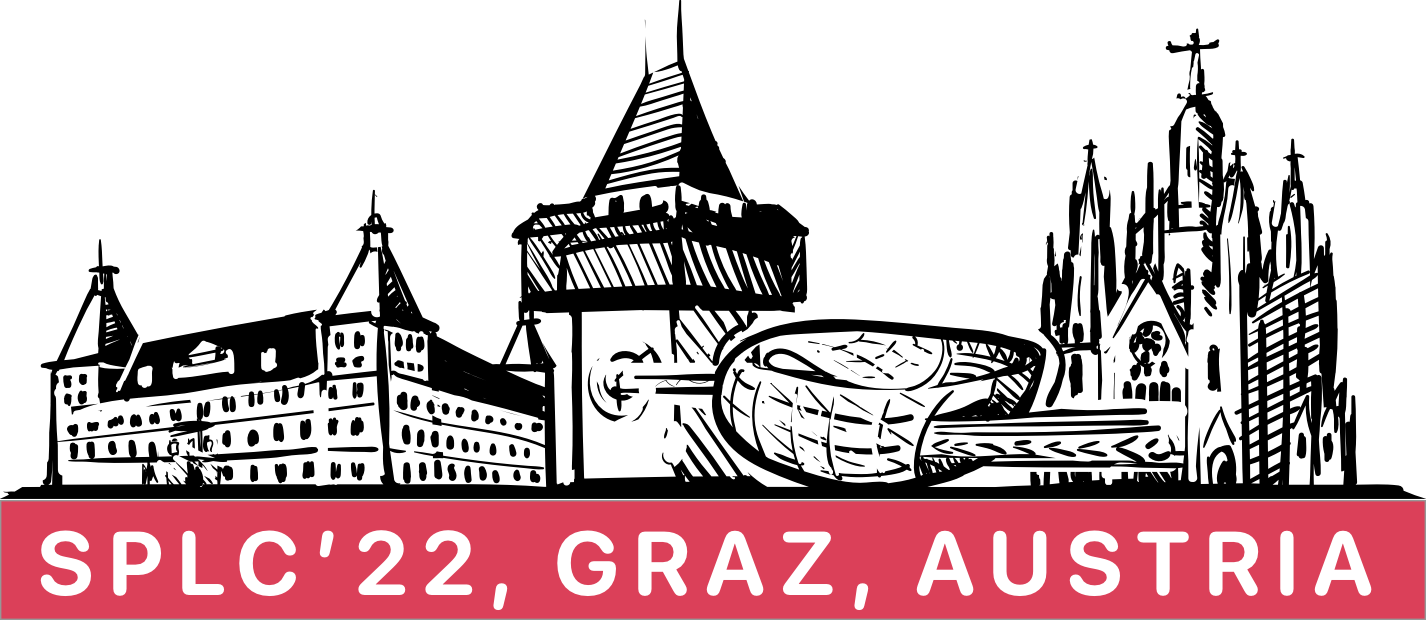For some decades now, product line engineering has been adopted in a myriad of different scenarios, including a broad variety of industrial domains. Many organizations have already benefited from implemented product line practices by improving customizability and quality while significantly reducing time-to-market and costs of engineering software-intensive products. Moreover, product lines have also shown promising results in other areas where an explicit management of variability can provide answers to the challenges posed by the domain. However, applying product line engineering also encounters a wide range of difficulties that can hinder their success and adoption. For instance, the emergence of Industry 4.0 and new technologies including artificial intelligence, digital twins, blockchain, and cyber-security technologies as well as crises such as the Covid-19 pandemic are posing new challenges – but offering new opportunities on the other hand. We seek contributions from industrial and academic researchers on applications of product line engineering to software and systems in practice, sharing their specifics, challenges, successes, and evaluations in all stages of technology readiness levels.
Topics:
We solicit papers on the following topics (but not limited to):
● Adopting or migrating to product line engineering
● Scoping of product/solution portfolios and assets
● Architecture, design, and implementation of product lines
● Process aspects, e.g., DevOps and agile processes
● Variability management across all lifecycle stages
● Organizational and business aspects, e.g., business ecosystems
● Continuous integration and deployment
● Artificial intelligence, including deep and machine learning technologies
● Cybersecurity and blockchain technologies
● Other novel technologies, e.g., digital twins, quantum computing, HPC, Exascale computing, Cloud/Edge/IoT computing and mobile networks (B5G)
● Quality and non-functional properties
● Software ecosystems, e.g., Android apps
● Tools and methods for guidance and governance
● Comparison and assessment of tools in the industry
● Product line testing, verification, and validation
● Version and configuration management
● Disruptive innovations and their effects on product lines
Submissions:
Full papers – Reporting experience from product line applications, preferably from but not limited to an industry domain. The papers in this category must provide sufficient context of the problems identified or addressed, describe clear requirements and/or experiences in solving them, provide an assessment of benefits and drawbacks or other lessons learned, and explain why the contribution is innovative or valuable for others.
Short papers – Describing early returns on new product line and software ecosystem applications and projects, or other shorter topics of interest.
Industrial Presentations – A short abstract from the industry for a presentation on any of the topics mentioned above from the industrial practice.
The page limit is 10 pages for full papers, and 5 pages for short papers, not including references (2 extra pages maximum). The abstract for an industrial presentation shall fit into one page. Submissions must follow the 20XX ACM Master Article Template and will be reviewed by at least 3 members of the program committee for the Industrial Systems and Software Product Lines in Practice track.
\documentclass[sigconf]{acmart}
\acmConference[SPLC'22]{26th International Systems and Software Product Line Conference}{X--Y September, 2022}{Graz, Austria}
The SPLC proceedings will be published in the ACM Digital Library. SPLC is ranked as a top conference.
At least one author of each accepted submission must register and attend SPLC 2022 for the submission to be published.
Submissions should be sent using EasyChair: https://easychair.org/conferences/?conf=splc2022
Important Dates:
Abstract submission: June 6, 2022 June 8, 2022Paper submission: June 9, 2022 June 12, 2022Notification: June 27, 2022Camera-ready paper: July 7, 2022- Main Conference: September 14-16, 2022
Chairs
Contact: splc22industrytrack@easychair.org
Program Committee
- Alessandra Bagnato, Softeam Software, FRA
- Martin Becker, Fraunhofer IESE Kaiserslautern, DEU
- Thorsten Berger, Ruhr-University Bochum, DEU
- Goetz Botterweck, Lero, Trinity College Dublin, IRL
- Deepak Dhungana, FH Krems, AUT
- Sebastien Gerard, CEA, LIST, FRA
- Iris Groher, Johannes Kepler University Linz, AUT
- Paul Grünbacher, Johannes Kepler University Linz, AUT
- Sten Grüner, ABB Corporate Research Germany, DEU
- Albert Haag, PMH, DEU
- Jean-Marc Jézéquel, University of Rennes, FRA
- Leticia Montalvillo, Ikerlan Research Centre, ESP
- Johannes Noppen, British Telecom, GBR
- Luisa Rincón, Universidad Nacional de Colombia, COL
- Mehrdad Saadatmand, RISE SICS Västerås, SWE
- Richard Taupe, Siemens, AUT
- Juha Tiihonen, Variantum, FIN
- Juha-Pekka Tolvanen, MetaCase, FIN
- Hironori Washizaki, Waseda University, JPN

